What's next for the implementation of the peace agreement after the elimination of the UN Verification Mission's tasks?
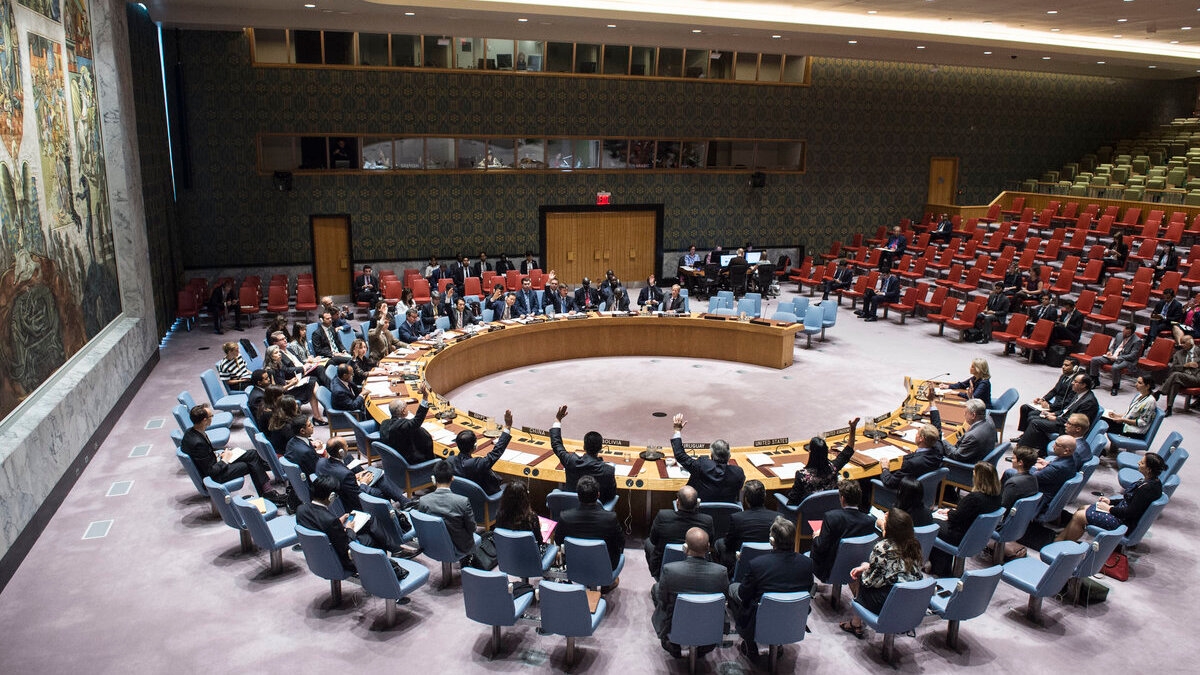
The extension of the mandate of the UN Verification Mission in Colombia until October 31, 2026, left a bittersweet taste: although its renewal for another year was approved , the Security Council session highlighted the divisions that are beginning to emerge regarding international support for the peace process in Colombia.
For the first time since 2017, a split emerged in the unanimous vote to continue the Mission. The United States and Russia abstained from voting, but for different reasons.
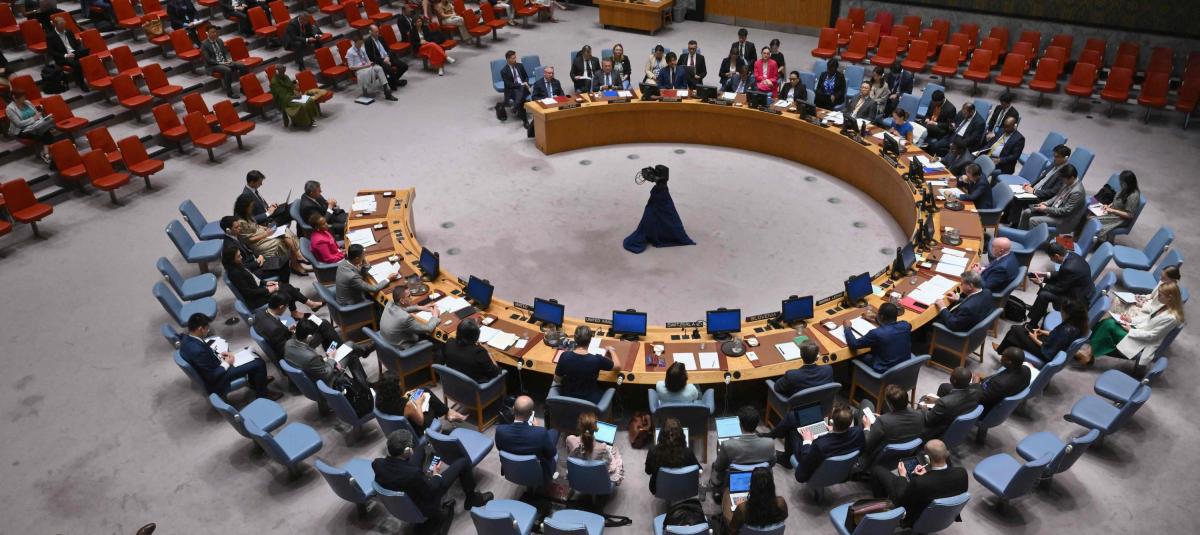
The UN Security Council. Photo: AFP
" The United States no longer wants to compromise on its position on peace and security in the name of a flawed peace process ," said US Ambassador to the UN, Michael Waltz.
Vasily Nebenzya, the Russian ambassador, indicated that his abstention was due to his disagreement with the withdrawal of the Mission's functions related to the verification of restorative sentences of the Special Jurisdiction for Peace (JEP) and the accompaniment of the Ethnic Chapter.
In addition to Russia, Denmark, Panama, and Guyana, among other members, opposed the elimination of these functions, especially since the JEP has just issued its first two convictions (its own sanctions): that of the top FARC leaders for kidnapping cases and all related crimes, and that of the retired military personnel of the La Popa Battalion for cases of 'false positives'.
However, priority was given to ensuring that the Mission continued to operate, given the risk that the United States would veto the resolution if the scope of the mandate was not modified.
According to Jorge Restrepo, director of the Center for Conflict Analysis Resources (CERAC), the reason for this is related to the current government's peace negotiation policies, although the fact that the resolution wasn't vetoed ultimately represents a kind of victory for the Executive branch. "It's all related to peace policies and how they affect policy in terms of combating the production and international trafficking of narcotics, which is the message the United States sent," he explained.
What's coming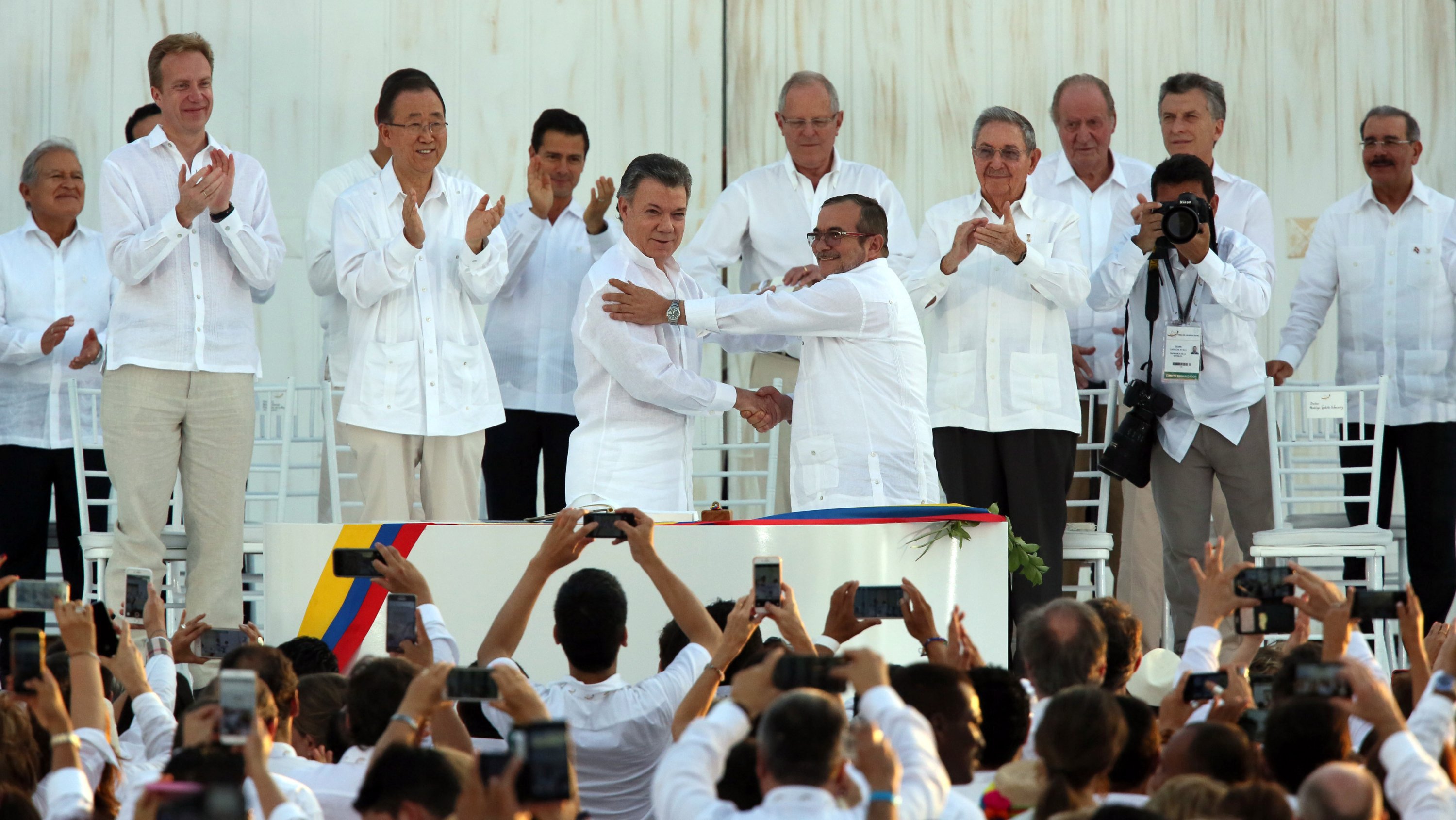
The agreement was signed during Juan Manuel Santos's presidency. Photo: Héctor Fabio Zamora. EL TIEMPO Archive
Thus, the renewed mandate will focus solely on verifying three aspects of the peace agreement: the political, economic, and social reintegration of former FARC members; security guarantees for peace signatories, their families, leaders, and communities; and comprehensive rural reform.
"The mission will continue to verify compliance in the specific areas of the agreement within its mandate and to support the Colombians who work tirelessly for peace and security in the country," said the newly appointed head of the Mission, Miroslav Jenča.
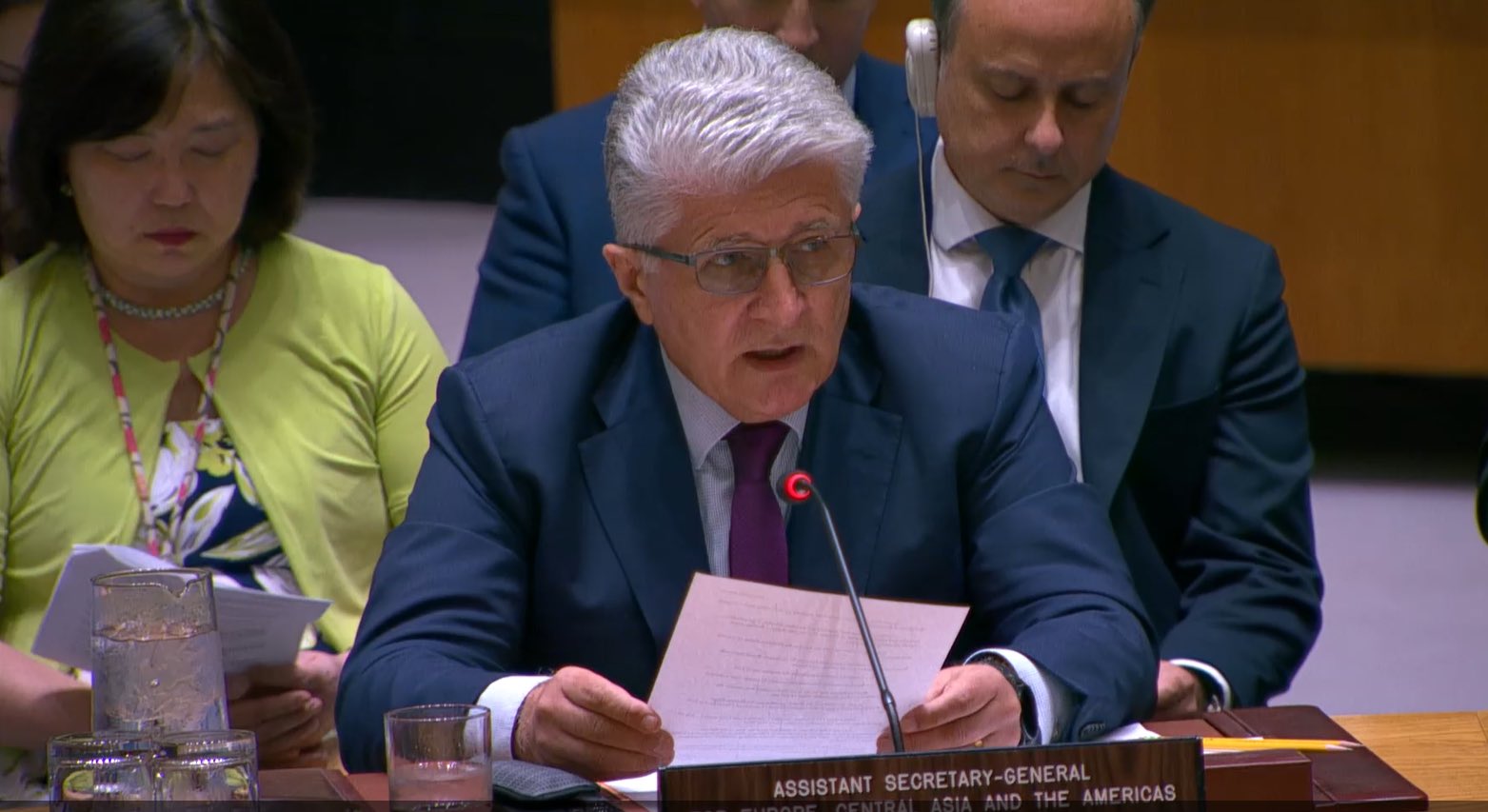
Miroslav Jenča is the new Special Representative of the UN Secretary-General in Colombia. Photo: UN
María Victoria Llorente, Executive Director of the Ideas for Peace Foundation (FIP), told this newspaper prior to the renewal of the Mission that, because it is close to completing 10 of the 15 years planned for its implementation, the Havana (Cuba) peace agreement still enjoys a margin at the multilateral level.
"In terms of time, there are still functions related to implementation, so there is still room for support and waiting time," he said.
Jorge Restrepo emphasized that implementation is a government responsibility that does not require international verification. "What the Security Council is doing is returning the mission's mandate to its original objectives."
Over the past eight years, implementation progress has been uneven across its various aspects. One of the most lagging areas is precisely the ethnic component, which is now losing the Mission's oversight.
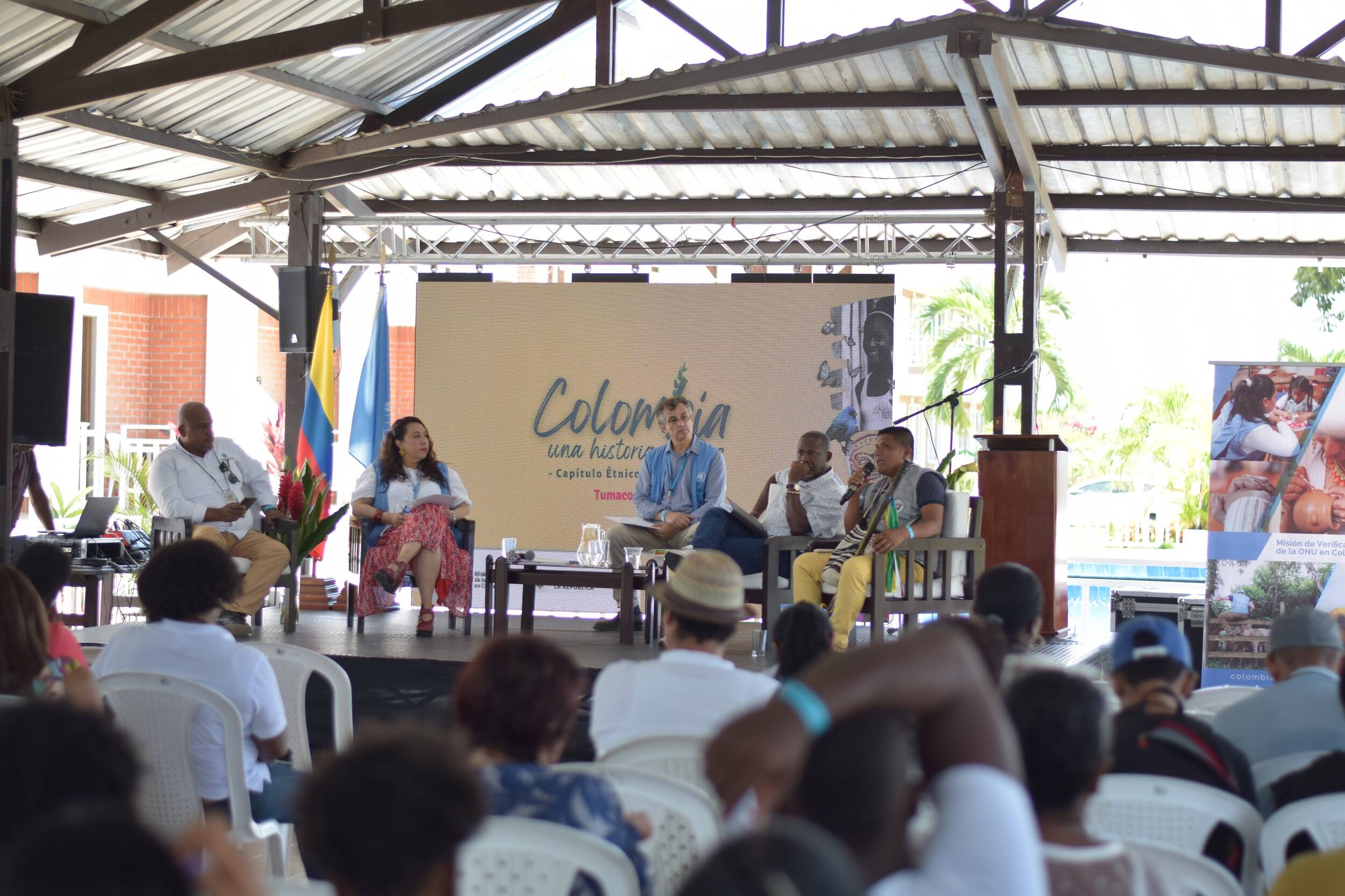
Ethnic chapter in Tumaco. Photo: Camilo A. Castillo. EL TIEMPO
"We are disappointed that it was not possible to renew all aspects of the mission's mandate. A key missing element is the mandate to monitor the implementation of the Ethnic Chapter, which is of grave concern to the A3+ Group, especially given the slow pace at which this chapter of the agreement is being implemented," said Guyana's representation at the Security Council.
In its most recent quarterly report, the Mission warned that the security situation in ethnic communities remained a cause for serious concern and has far-reaching repercussions for human rights, social cohesion and cultural preservation.
Following a political oversight debate on the matter convened by an Afro-Colombian congressman from the Comunes party, specific follow-up measures were agreed upon to advance in three key areas: access to land, PDET and reintegration of ex-combatants of ethnic origin.
For Restrepo, the elimination of this verification has no material impact on the ethnic component because "with the closure of USAID, the resources that the United States had committed to the implementation of ethnic safeguards have disappeared. Therefore, the verification mission ceases to fulfill that role because the resources have vanished. It strikes me as odd that they continue to conduct verification in rural areas; it's merely a political victory for the government," he added.
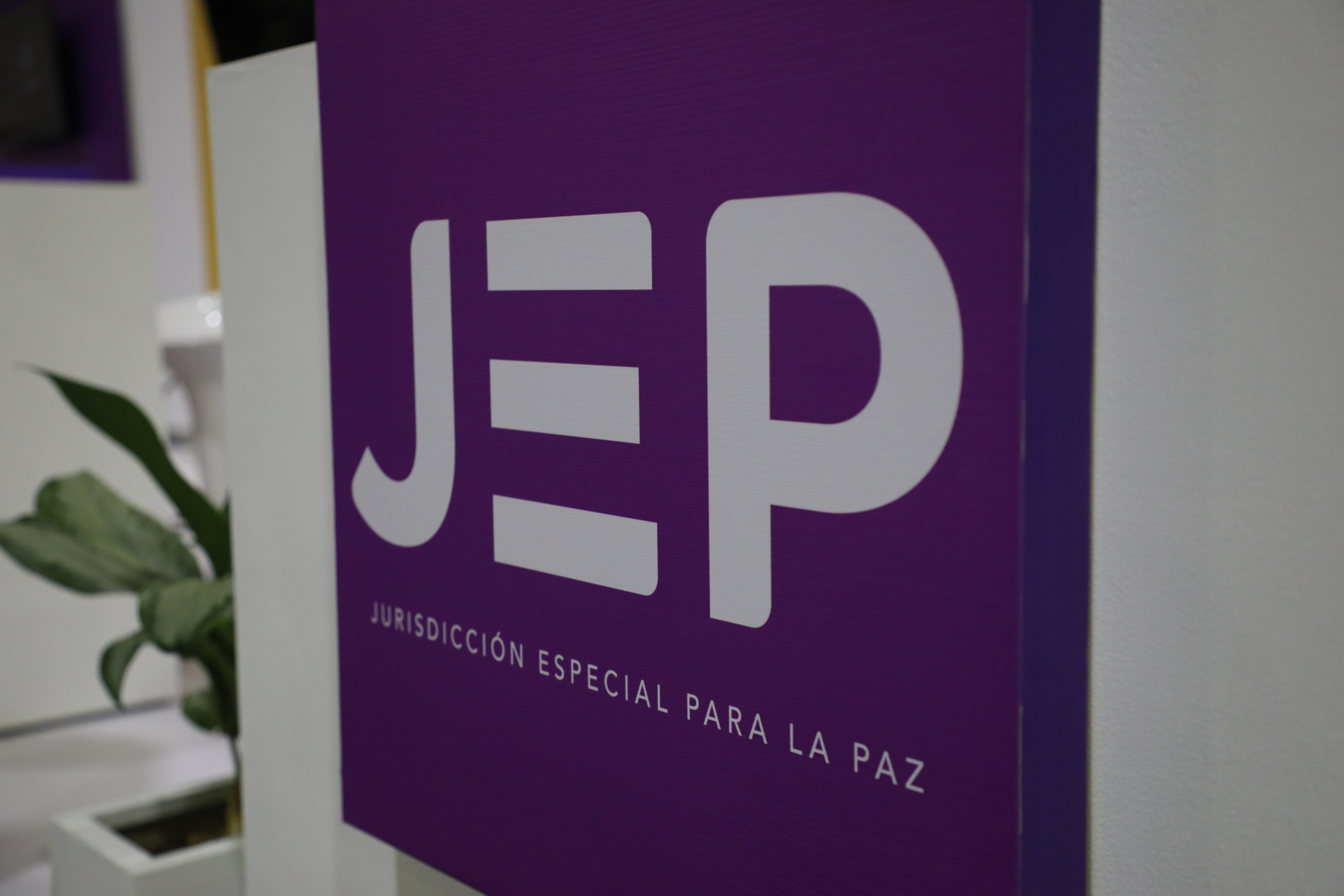
Special Jurisdiction for Peace (JEP). Photo: Courtesy
Regarding the JEP, the Danish representation regretted that the Mission had not been able to supervise the implementation of the first restorative justice sentences.
With regard to the implementation of the first two rulings, the jurisdiction will be left without international support, and the responsibility will now fall on the Government and the local justice system.
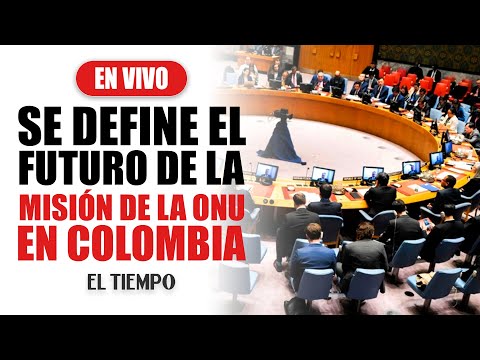
See the voting | El Tiempo Photo:
The JEP assured that the new scope of that Mission does not jeopardize the verification and compliance with the first convictions.
“In practice, this decision does not affect the monitoring and verification of the Special Jurisdiction for Peace's (JEP) own sanctions. Over the past few years, working with the Mission, we have designed a rigorous mechanism that combines fieldwork with advanced technology to record information in real time, while those appearing before the JEP carry out searches for missing persons, demining, and other restorative actions established in the sentences,” said the president of the JEP, Judge Alejandro Ramelli.
JUAN PABLO PENAGOS RAMÍREZ
eltiempo





